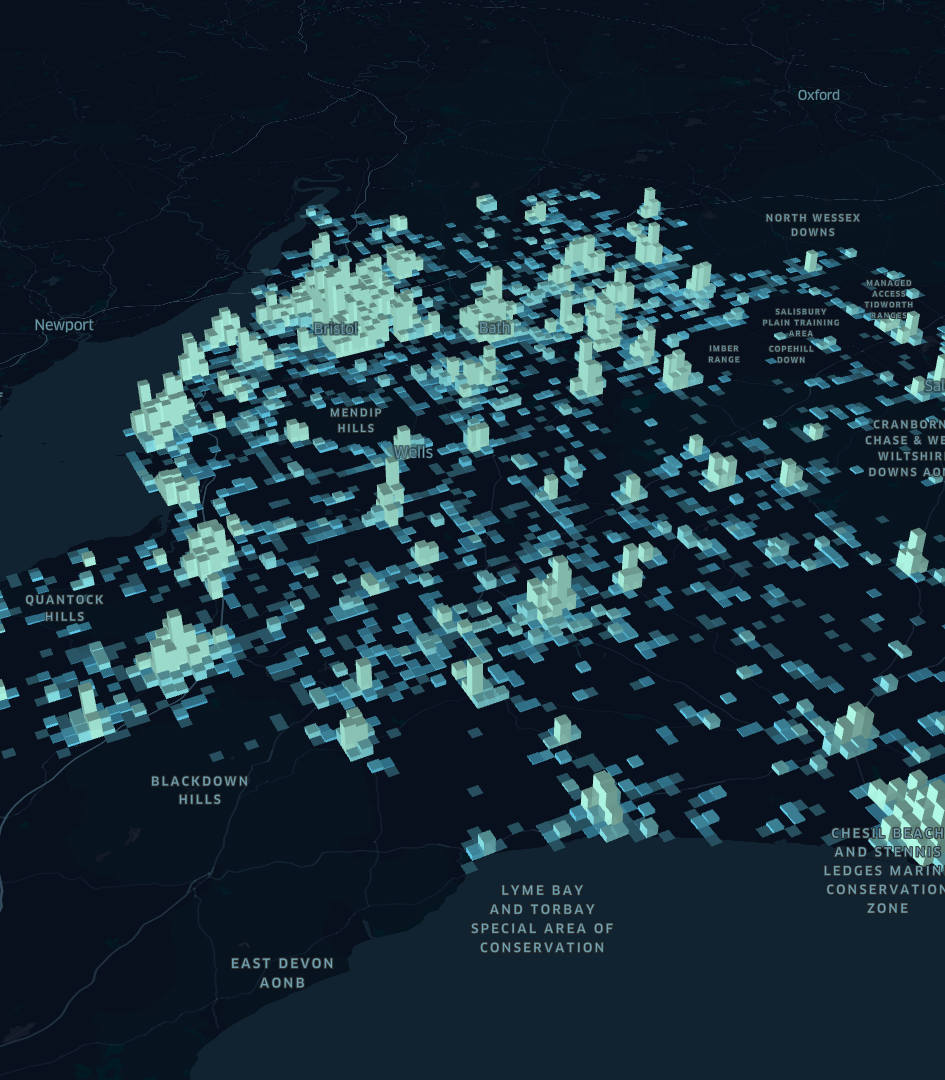Over the last six weeks we’ve been working with Wessex Water, along with teams of PhD students in Bristol and Exeter, to help them understand new ways they can use their data.
Businesses of all sizes and in all sectors are exploring ways to create more value from the data they collected in their day to day operations. New tools and technologies are creating opportunities to explore and analyse data in more sophisticated ways. Increasing volumes of open data is also creating opportunities to connecting data to census and geospatial datasets that provide the context necessary to unlock new insights.
But many organisations often need help to understand the new ways that they can use their data. An external perspective and a little open innovation can usually highlight new possibilities.
Over the last six weeks, Wessex Water invited teams of students from local universities and Bath: Hacked to explore some of their data. Their request to us all was: “What can you tell us about sewerage incidents that might help us reduce pollution and flooding?“.
The data they provided was an anonymised dataset containing five years worth of sewage incident reports from across the region. The dataset included information on when and where the flooding took place, the causes, recent weather conditions and a variety of other fields.
As this was their first attempt at sharing data in this way, Wessex Water decided not to publish the data under an open licence. Normally we’d prefer to do everything in the open, but understand that companies are often just starting their journey towards embracing open innovation, and releasing data for anyone to access, use and share.
This isn’t the first time we’ve worked with a more closed dataset. Our work with the Strava Metro data helped Strava to understand how cities could use that dataset, whilst creating some insights for the local community.
Over the last month or so a small team of Bath: Hacked volunteers have been exploring the Wessex Water data. We put together a presentation that explored:
- the distribution of incidents over space and time to explore how and when incidents occur and relate to one another
- connecting the data to census data, including the output area classifications to explore the demographics of affected areas
- looked for relationships to datasets on building ages, rainfall and flooding risk
- explored ways to summarise the causes of incidents to help refine Wessex Water’s interventions and behaviour change campaigns
- tools to visualise the data to help the team at Wessex to further explore their data
Our team have had a fabulous day at Wessex Water offering insights into sewage data. Our work didn't go down the drain though, we managed to wow the judges and take first prize at their first hackathon. Lovely people, great day. pic.twitter.com/YpdAgrj4q0
— Bath: Hacked (@BathHacked) November 17, 2018
Our final recommendations included suggestions to further explore some areas with repeat incidents and ways to improve the quality and management of their data. Like any organisation wanting to create more insight from its data, Wessex Water need to treat data as an asset. Like the physical network its already maintaining, its data is infrastructure that supports its operations.
It was great to be part of the exercise and we look forward to seeing what Wessex Water do next. We hope that, like their peers Yorkshire Water, they plan to continue on their journey towards open data and open innovation. We’re happy to help support and encourage them in that journey.


December 6, 2018 at 9:29 am
Well done guys! Looks like an interesting data set and you did well!